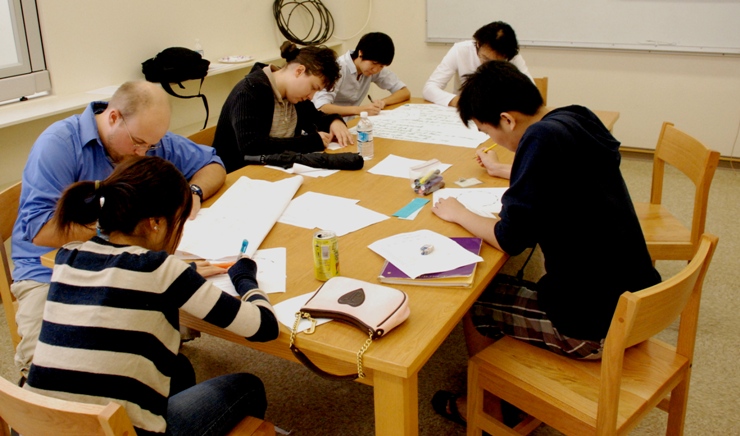
I can still remember the day in 2nd grade when my dad came home from work and told me he had signed me up for tutoring classes. At the time, I cannot say that I was all that surprised.
I’ve never been able to claim natural scholarly talent in the realms of math and science. Taking home report cards would always give me anxiety, even stemming from the tender age of 7. Given that my dad would always voice his disappointment in my inability to do well in these subjects, the call to enlist me in tuition classes seemed like a natural decision. As my dad dropped me off on my first day, little did I know then that these classes would soon become a weekly staple of my life that would span the course of 10 long years.
I will be the first to admit that as a child, I never really took tuition classes seriously. I would often dread Mondays. Not only did it mark the beginning of the school week (if that was not depressing enough), but it also marked the one day in which my parents would make the twenty minute drive after picking me up from school, to drop me off at tuition class. While there, I would often stare at the clock on the teacher’s desk and count down the minutes until the class would be over.
That's not to say that my experience at tuition class was always dull. These classes actually taught me a lot about what it means to be Tamil. For instance, Thai Pongal would be celebrated in class every year, and the teacher would often take a few moments to hand out treats to the students and tell us about what the occasion meant. Growing up with only one Tamil parent, I found such events to be particularly interesting as they introduced me to things about my culture that I wasn’t familiar with before. It even spurred me to ask my dad more about these occasions during our car rides home!
Another instance worth noting (albeit an embarrassing one) is when I noticed that the students in the class would call the teacher “Master” when they wanted to answer a question or get his attention. After spending my first few months not knowing what the word meant but feeling too shy to admit it, one day I decided to ask the girl sitting beside me why everyone called the teacher “Master.” I clearly remember her laughing and saying, “You didn’t know?! It means teacher. I can’t believe you didn’t know that!” To this day it amazes me that I wasn’t able to connect the dots!

As I never had Tamil family in Canada, these tuition classes also strangely served to help fill a void in my Tamil cultural experiences. Celebrating festivals like Thai Pongal and hearing kids talk to each other using a mix of Tamil and English words opened up a new window of knowledge to me, apart from the math and science lessons I was signed up there to learn.
As the years went by, to my parent’s relief, I began to take these tuition classes much more seriously. As with many children born to Tamil parents - and children born to immigrant parents more generally can relate to - there is the often tremendous pressure placed on us to succeed. In turn, how success is defined is often very narrow. If you are not a doctor or an engineer, it is seen as a failure on behalf of not only the child but the parents, in not having their child attain a certain level of education, financial security, and with that, an overall marker of status in the community.
My own parents would continuously tell me about the children of their family friends and how so and so’s child got into medical school or doing a Master’s degree. Given the constant comparisons to other kids, my attendance at these tuition classes became increasingly focused and motivated. Luckily for them, it all worked out in their favour. In high school I excelled in every subject area largely because of the pressure I felt to succeed, and the subsequent new approach I took to tuition classes (which was to dare I say, actually learn).
However, at these weekly tuition classes, I would begin to notice that week by week the class size would get smaller. Some of the kids that I had studied with for years no longer came, and I began to see that those who did stick around were often the ones who had taken it seriously to begin with, or who like me felt increasing pressure from their parents to live up to their expectations.

I can see why there has been such a proliferation of tuition classes within the Tamil community over the years, premised on the common rhetoric of parents simply wanting the best for the children. To many Tamil parents, this is seen in high paying careers that they view as intrinsically linked to doing well in school.
However, my experiences have taught me that it is not enough to simply put kids into tutoring classes and expect them to automatically become straight A students who will inevitably become doctors. From having watched a lot of my peers leave tuition in the midst of high school, I’ve come to the realization that kids ultimately have to find a reason within themselves to make use of these classes. A desire that may be influenced by parental pressure as in my case, but a motivation and mindset that has to be developed within the child as well.
My parent’s pressure for me to do well ultimately rubbed off on me and became what I wanted. I started to fear that if I didn’t do well in school or take advantage of these classes, I would consequently lead a life without ambition and thus never achieve any of the dreams that I had longed for since childhood. Owning my own house and traveling the world would remain as fantasies if I didn’t do anything myself to make them a reality.
Looking back at my years at tuition, I’m now better able to appreciate what my parents did for me by sending me there. I didn’t just learn math and science skills, but I also inadvertently learned a lot about my Tamil heritage, and made some new friends along the way.
Perhaps the biggest thing I took from these classes was the life lesson of how Tamil parents express love for their children. In wanting us to be successful, they will often do anything in their power to make it happen. For my parents, they saw their opportunity for me via tuition classes.
Related: "It’s Time to Start Appreciating our Tamil Parents" "Why Tamil Parents Need to be Better Parents"

























